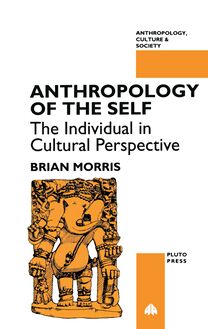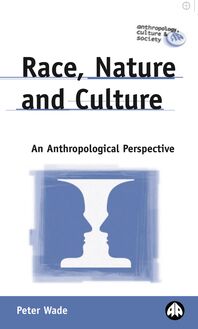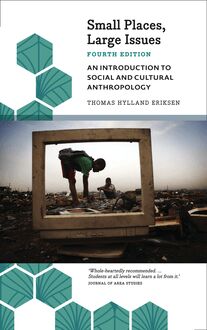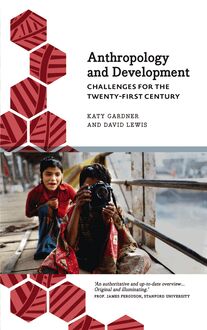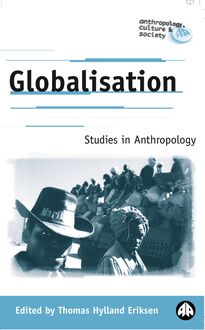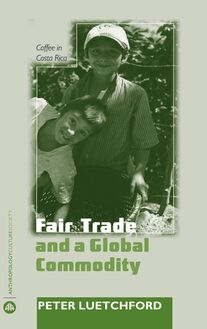-
 Univers
Univers
-
 Ebooks
Ebooks
-
 Livres audio
Livres audio
-
 Presse
Presse
-
 Podcasts
Podcasts
-
 BD
BD
-
 Documents
Documents
-
- Cours
- Révisions
- Ressources pédagogiques
- Sciences de l’éducation
- Manuels scolaires
- Langues
- Travaux de classe
- Annales de BEP
- Etudes supérieures
- Maternelle et primaire
- Fiches de lecture
- Orientation scolaire
- Méthodologie
- Corrigés de devoir
- Annales d’examens et concours
- Annales du bac
- Annales du brevet
- Rapports de stage
La lecture à portée de main
Vous pourrez modifier la taille du texte de cet ouvrage
Découvre YouScribe en t'inscrivant gratuitement
Je m'inscrisDécouvre YouScribe en t'inscrivant gratuitement
Je m'inscrisEn savoir plus
Vous pourrez modifier la taille du texte de cet ouvrage
En savoir plus

Description
Lucid and accessible, What is Anthropology? draws examples from current affairs as well as previous anthropological studies. He looks at the history of anthropology, its unique research methods and some of its central concepts, such as society, culture and translation.
This second edition contains a new introduction, as well as updates throughout. New content includes discussions about Brexit, the rise of the populist Right in Europe, the anthropology of climate change and social media. What is Anthropology? shows in persuasive ways why anthropology is a fundamental intellectual discipline, perhaps more so in the 21st century than ever before.
Series Preface
Part I: Entrances
1. Why Anthropology?
2. Key Concepts
3. Ethnography
4. Theory
Part II: Fields
5. Reciprocity
6. Kinship
7. Nature
8. Thought
9. Social Identity
Bibliography
Index
Sujets
Informations
| Publié par | Pluto Press |
| Date de parution | 20 mai 2017 |
| Nombre de lectures | 0 |
| EAN13 | 9781786800916 |
| Langue | English |
Informations légales : prix de location à la page 0,1148€. Cette information est donnée uniquement à titre indicatif conformément à la législation en vigueur.
Extrait
What is Anthropology?
Anthropology, Culture and Society
Series Editors: Doctor Jamie Cross, University of Edinburgh and Professor Christina Garsten, Stockholm University
Recent titles:
The Limits to Citizen Power: Participatory Democracy and the Entanglements of the State
V ICTOR A LBERT
Becoming Arab in London: Performativity and the Undoing of Identity
R AMY M. K. A LY
Community, Cosmopolitanism and the Problem of Human Commonality
V ERED A MIT AND N IGEL R APPORT
Anthropologies of Value
E DITED BY L UIS F ERNANDO A NGOSTO -F ERRANDEZ AND G EIR H ENNING P RESTERUDSTUEN
Dream Zones: Anticipating Capitalism and Development in India
J AMIE C ROSS
A History of Anthropology Second Edition
T HOMAS H YLLAND E RIKSEN AND F INN S IVERT N IELSEN
Ethnicity and Nationalism: Anthropological Perspectives Third Edition
T HOMAS H YLLAND E RIKSEN
Fredrik Barth: An Intellectual Biography
T HOMAS H YLLAND E RIKSEN
Small Places, Large Issues: An Introduction to Social and Cultural Anthropology Fourth Edition
T HOMAS H YLLAND E RIKSEN
At the Heart of the State: The Moral World of Institutions
D IDIER F ASSIN, ET AL.
Anthropology and Development: Challenges for the Twenty-first Century
K ATY G ARDNER AND D AVID L EWIS
Organisational Anthropology: Doing Ethnography In and Among Complex Organisations
E DITED BY C HRISTINA G ARSTEN AND A NETTE N YQVIST
Children of the Welfare State: Civilising Practices in Schools, Childcare and Families
L AURA G ILLIAM AND E VA G ULL V
Anthropology s World: Life in a Twenty-First Century Discipline
U LF H ANNERZ
Humans and Other Animals: Cross-cultural Perspectives on Human-Animal Interactions
S AMANTHA H URN
Flip-Flop: A Journey Through Globalisation's Backroads
C AROLINE K NOWLES
Faith and Charity: Religion and Humanitarian Assistance in West Africa
E DITED BY M ARIE N ATHALIE L E B LANC AND L OUIS A UDET G OSSELIN
The Anthropology of Security: Perspectives from the Frontline of Policing, Counter-Terrorism and Border Control
E DITED BY M ARK M AGUIRE , C ATARINA F ROIS AND N ILS Z URAWSKI
The Gloss of Harmony: The Politics of Policy Making in Multilateral Organisations
E DITED BY B IRGIT M LLER
Contesting Publics Feminism, Activism, Ethnography
L YNNE P HILLIPS AND S ALLY C OLE
Food For Change The Politics and Values of Social Movements
J EFF P RATT AND P ETER L UETCHFORD
Base Encounters: The US Armed Forces in South Korea
E LISABETH S CHOBER
Checkpoint, Temple, Church and Mosque: A Collaborative Ethnography of War and Peace
J ONATHAN S PENCER , J ONATHAN G OODHAND , S HAHUL H ASBULLAH , B ART K LEM , B ENEDIKT K ORF AND K ALINGA T UDOR S ILVA
Race and Ethnicity in Latin America Second Edition
P ETER W ADE
The Making of an African Working Class: Politics, Law and Cultural Protest in the Manual Workers Union of Botswana
P NINA W ERBNER
What is Anthropology?
Second Edition
Thomas Hylland Eriksen
First published 2004; second edition 2017 by Pluto Press 345 Archway Road, London N6 5AA
www.plutobooks.com
Copyright Thomas Hylland Eriksen 2004, 2017
The right of Thomas Hylland Eriksen to be identified as the author of this work has been asserted by him in accordance with the Copyright, Designs and Patents Act 1988.
British Library Cataloguing in Publication Data A catalogue record for this book is available from the British Library
ISBN 978 0 7453 9966 9 Hardback
ISBN 978 0 7453 9965 2 Paperback
ISBN 978 1 7868 0090 9 PDF eBook
ISBN 978 1 7868 0092 3 Kindle eBook
ISBN 978 1 7868 0091 6 EPUB eBook
This book is printed on paper suitable for recycling and made from fully managed and sustained forest sources. Logging, pulping and manufacturing processes are expected to conform to the environmental standards of the country of origin.
Typeset by Stanford DTP Services, Northampton, England
Simultaneously printed in the United Kingdom and United States of America
Make everything as simple as possible. But no simpler. (Einstein)
He who speaks no foreign language knows nothing about his own. (Goethe)
Contents
Series Preface
PART 1 ENTRANCES
1 Why Anthropology?
2 Key Concepts
3 Ethnography
4 Theories
PART 2 FIELDS
5 Reciprocity
6 Kinship
7 Nature
8 Thought
9 Social Identity
Bibliography
Index
Series Preface
Anthropology is a discipline based upon in-depth ethnographic works that deal with wider theoretical issues in the context of particular, local conditions - to paraphrase an important volume from the series: large issues explored in small places . This series has a particular mission: to publish work that moves away from an old-style descriptive ethnography that is strongly area-studies oriented, and offer genuine theoretical arguments that are of interest to a much wider readership, but which are nevertheless located and grounded in solid ethnographic research. If anthropology is to argue itself a place in the contemporary intellectual world, then it must surely be through such research.
We start from the question: What can this ethnographic material tell us about the bigger theoretical issues that concern the social sciences? rather than What can these theoretical ideas tell us about the ethnographic context? Put this way round, such work becomes about large issues, set in a (relatively) small place, rather than detailed description of a small place for its own sake. As Clifford Geertz once said, Anthropologists don t study villages; they study in villages.
By place, we mean not only geographical locale, but also other types of place - within political, economic, religious or other social systems. We therefore publish work based on ethnography within political and religious movements, occupational or class groups, among youth, development agencies, and nationalist movements; but also work that is more thematically based - on kinship, landscape, the state, violence, corruption, the self. The series publishes four kinds of volume: ethnographic monographs; comparative texts; edited collections; and shorter, polemical essays.
We publish work from all traditions of anthropology, and all parts of the world, which combines theoretical debate with empirical evidence to demonstrate anthropology s unique position in contemporary scholarship and the contemporary world.
Dr Jamie Cross Professor Christina Garsten
Part 1
Entrances
1
Why Anthropology?
Anthropology is sometimes described as the art of making the familiar exotic and the exotic familiar . It has also been described as the most humanistic of the sciences and the most scientific of the humanities . Anthropology can be defined as the comparative study of humans, their societies and their cultural worlds. It simultaneously explores human diversity and what it is that all human beings have in common.
For many years, social and cultural anthropology was associated with the study of remote places and small-scale societies, many of them unfamiliar with literacy and not incorporated into the institutions of the state. Although the study of human diversity concerns all societies, from the smallest to the largest and from the simplest to the most complex, most anthropologists today recognise that all societies in the contemporary world are involved in processes of enormous complexity, such as migration, climate change, global economic crises and the transnational circulation of ideas. Just as European and North American anthropologists of the early twentieth century struggled to understand and describe the native s point of view when they travelled to such then-remote parts of the world as Melanesia or Africa, contemporary anthropologists try to grasp their areas of inquiry as fully as possible wherever they conduct research, be it in their own backyard or in faraway locations. They then report on how the people they are studying perceive the world and act upon it, still striving to understand the native s point of view , even if the focus of inquiry may now be consumption in a European city or ethnic politics in the Pacific.
In many North Atlantic societies, ideas and patterns of thinking derived from anthropology have become part of the vocabulary of journalists and policymakers in the last few decades. This is no coincidence. In fact, it can be argued that anthropology is indispensable for understanding the present world, and there is no need to have a strong passion for African kinship or Polynesian gift exchange to appreciate its significance. Indeed, in a shrinking world like ours - a world of cultural diversity, frictions, mobility, misunderstandings, ethnic complexity and rapid social and cultural change - the kind of knowledge anthropologists can contribute is more indispensable than ever. In the study of human diversity, anthropology offers tools and perspectives that make the contemporary world easier to understand and, perhaps, easier to make peace with.
Let us look at some of the reasons why anthropological knowledge can be especially useful when we try to make sense of the contemporary world. First, contact between culturally different groups has increased enormously in our time. Long-distance travel has become common, safe and relatively inexpensive. In the nineteenth century, only a small proportion of the western populations travelled to other countries (emigrants excluded) and, as late as the 1950s, even fairly affluent Europeans rarely went on holiday abroad. As is well known, this has changed dramatically in recent decades. The flows of people who move temporarily between countries have grown and have led to intensified contact: business-people, aid workers and tourists travel from more economically developed countries to less economically developed ones, and labour migrants, refugees and students move in the opposite direction. Many more westerners visit exotic places today than a generation ago. In the 1950s, people may have been able to go on a trip to Rome or London once in their lifetime. In the 1980s, young
-
 Univers
Univers
-
 Ebooks
Ebooks
-
 Livres audio
Livres audio
-
 Presse
Presse
-
 Podcasts
Podcasts
-
 BD
BD
-
 Documents
Documents
-
Jeunesse
-
Littérature
-
Ressources professionnelles
-
Santé et bien-être
-
Savoirs
-
Education
-
Loisirs et hobbies
-
Art, musique et cinéma
-
Actualité et débat de société
-
Jeunesse
-
Littérature
-
Ressources professionnelles
-
Santé et bien-être
-
Savoirs
-
Education
-
Loisirs et hobbies
-
Art, musique et cinéma
-
Actualité et débat de société
-
Actualités
-
Lifestyle
-
Presse jeunesse
-
Presse professionnelle
-
Pratique
-
Presse sportive
-
Presse internationale
-
Culture & Médias
-
Action et Aventures
-
Science-fiction et Fantasy
-
Société
-
Jeunesse
-
Littérature
-
Ressources professionnelles
-
Santé et bien-être
-
Savoirs
-
Education
-
Loisirs et hobbies
-
Art, musique et cinéma
-
Actualité et débat de société
- Cours
- Révisions
- Ressources pédagogiques
- Sciences de l’éducation
- Manuels scolaires
- Langues
- Travaux de classe
- Annales de BEP
- Etudes supérieures
- Maternelle et primaire
- Fiches de lecture
- Orientation scolaire
- Méthodologie
- Corrigés de devoir
- Annales d’examens et concours
- Annales du bac
- Annales du brevet
- Rapports de stage
